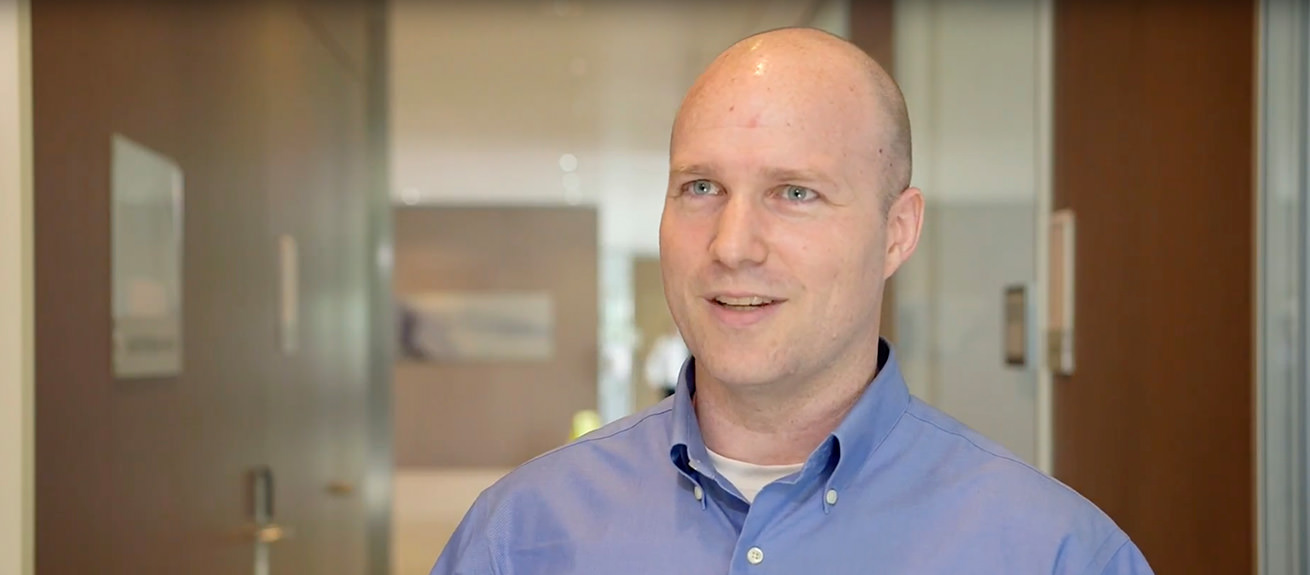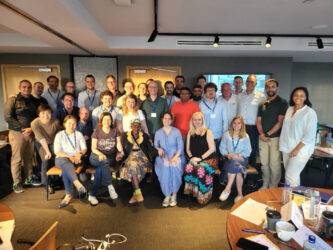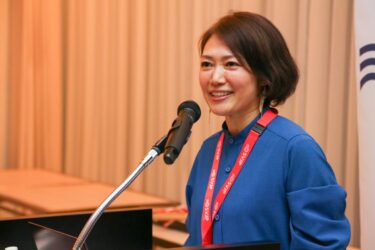IMD: Why did you choose IMD for your MBA?
BRYAN HASSIN: Some people come to IMD because they’re looking for a career change – and I really wasn’t. I had been a tech startup CEO before IMD and I had some pretty big successes. But I’d also had some failures, and it had become pretty evident to me that the difference between the successes and the failures wasn’t because of business models or technologies – it was because of people. So if I wanted to be a more effective entrepreneur and a more effective CEO, it really came down to leadership. And so I came to IMD trying to cultivate and develop my leadership skills.
It was pretty amazing. I mean, there are a lot of places that talk about leadership, but here we ate it, we lived it, we breathed it 24/7 – everything from deep internal analysis as to what makes us tick, to group dynamics and leadership within groups and organizations. And everything we did was under the microscope with a lens of leadership: being debriefed by leadership coaches and psychologists, and of course peer feedback as well.
And so it was really impactful for me, helping me shore up my strengths – because I was a natural leader but clearly still had a lot of room for improvement. It also helped me shore up my weaknesses. It helped me even identify what those weaknesses were in the first place. And the proof has really been in the pudding: I’ve been a profoundly more effective entrepreneur and leader ever since IMD.
IMD: What were the highlights of your IMD experience?
BRYAN HASSIN: We spent a lot of our time with our heads down, “in the dungeons,” toiling – mostly together, mostly in groups –working on leadership.
But to me, some of the greatest memories came from the results of all of that work and all of that toil. We would have these intense weekend integrative exercises in which we’d be working on some multifaceted problem as a group that we had to solve under a really tight deadline. But when we’d finish and we’d present our results to not just to professors and to our classmates but to industry experts from the outside, and they’d challenge us and we’d defend them and feel really, really good about what we had done, it felt like we had taken a big shift – not just for this project but for our own development personally.
So I remember one of those instances in particular, coming out afterward – I mean, they’d really put us through the wringer but at the end said that we’d done an amazing job – and we felt very proud, so recharged. It was pretty awesome.
With the benefit of nine years of hindsight, the relationships that we developed over the course of the MBA have turned into not only memories that were made back then but memories that have been extended ad infinitum. We have 90 students from 45 countries, people all around the world – every industry, every geography; we stay in really close touch with each other; we have reunions every year in a different place where we have people to host us; we try to come back to Lausanne sometimes as well – so it’s pretty rewarding. It’s not just about the year and making memories during the year of the MBA; it’s about the lifetime.
IMD: What is it like to come back to IMD?
BRYAN HASSIN: IMD was a place of significant personal growth for me, and probably for a lot of us, so it’s a very special place. It was a place where there was a lot of hardship that was endured but also a place where there was a lot of growth that happened. IMD Professor George Kohlrieser, who describes “secure bases” as something that we have to have in our lives, to help us have the confidence to take risks and challenge ourselves. For me IMD is a secure base. It’s a place where we did take risks and we did challenge ourselves and ultimately wound up much better for it.
So, coming back to IMD physically kind of revitalizes that connection and I always leave, having come back to IMD, I always leave feeling more energized and more ready to shake things up and take on the world than when I arrived. So I think it’s important to come back physically.
In terms of the actual MBA community, it’s a small community. We only have 90 students per class. Compare that to some other MBA programs that have 900 or even more per class. It’s 90 students from 45 or so countries – every industry, every geography represented – and not people who are just “getting a credential”; people are so motivated that they’ve moved, often moved their entire families around the world to come live in Lausanne for a year, forgone nice salaries and their cushy executive jobs, to invest in themselves, to invest in ambition, invest in personal growth and development. So the network, even within just those 90, is a really high-impact network, and because it’s so small those bonds are really tight. And of course it’s not just the 90 – right? There’s 90 in every class. And so one of the great things about coming to an event like this is kind of transcending the boundaries of just the 90 of us who are all together and really starting to forge connections and bonds with some of those other talented, diverse, ambitious wonderful MBAs as well.




